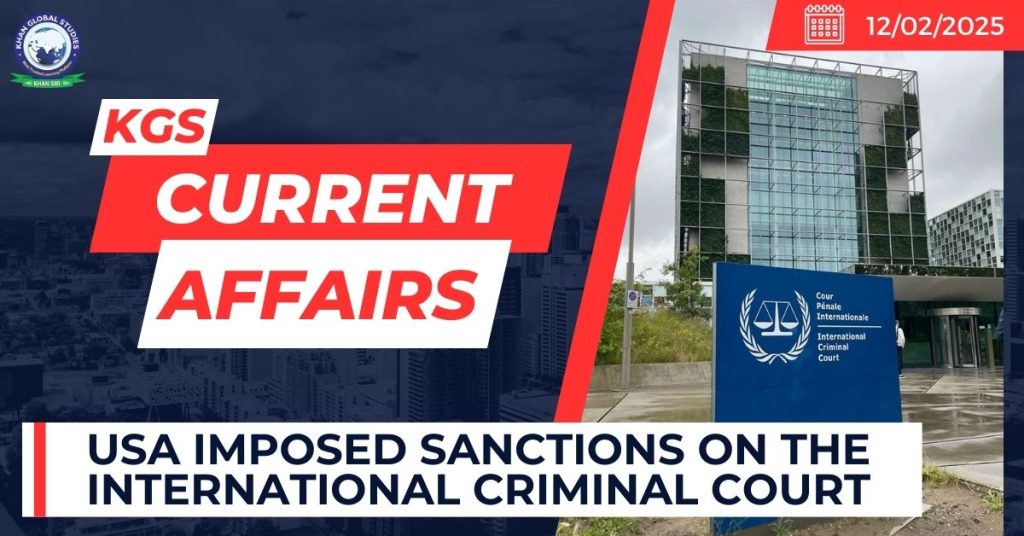Context:
The USA’s President Donald Trump has signed an executive order sanctioning the International Criminal Court (ICC).
More on the News:
- The executive order further stated that the USA finds that the International Criminal Court (ICC) has engaged in illegitimate and baseless actions targeting America and its close ally Israel.
- In the past, the ICC has asserted jurisdiction over and opened preliminary investigations concerning personnel of the United States and certain of its allies, including Israel.
Background of USA and ICC:
- The US is not a state party to the Rome Statute.
- The US participated in the negotiations that led to the creation of the court.
- However, in 1998 the US was one of only seven countries – along with China, Iraq, Israel, Libya, Qatar, and Yemen – that voted against the Rome Statute.
- US President Bill Clinton signed the Rome Statute in 2000 but did not submit the treaty to the Senate for ratification.
- In 2002, President George W. Bush effectively “unsigned” the treaty, sending a note to the United Nations secretary-general that the US no longer intended to ratify the treaty and that it did not have any obligations toward it.
- The USA has accused the ICC of abusing its power by issuing baseless arrest warrants targeting Israeli Prime Minister and Former Minister of Defense.
International Criminal Court (ICC):
It is a permanent international court established to investigate, prosecute and try individuals (above 18 and not groups/states) accused of committing the most serious crimes (genocide, war crimes, and crimes against humanity) of concern to the international community as a whole.
On 17 July 1998, 120 States adopted the “Rome Statute” for establishing the International Criminal Court.
The Rome Statute entered into force on 1 July 2002 after ratification by 60 countries.
The ICC has jurisdiction over the most serious crimes of concern to the international community as a whole, namely genocide, crimes against humanity and war crimes, when committed after 1 July 2002.

The Court may exercise jurisdiction over such international crimes only if they were committed on the territory of a State Party or by one of its nationals.
It can investigate, warrant, prosecute and try individuals only if the State concerned national court does not, cannot or is unwilling to do so genuinely.
- This above principle is known as the principle of complementarity, under which priority is given to national systems.
The seat of the Court: Hague (Netherlands).
The Court is funded by contributions from the States Parties and by voluntary contributions from governments, international organisations, individuals, corporations, etc.
ICC is neither an office nor an agency of the United Nations instead both signed an agreement governing their institutional relationship in 2004.
The Rome Statute gives the Security Council a unique jurisdictional role.
- The UN Security Council can refer situations to the International Criminal Court (ICC) when it suspects crimes against humanity, genocide, war crimes, or the crime of aggression.
India has neither signed nor ratified the Rome Statute (‘Statute’) of the International Criminal Court (‘ICC’).

